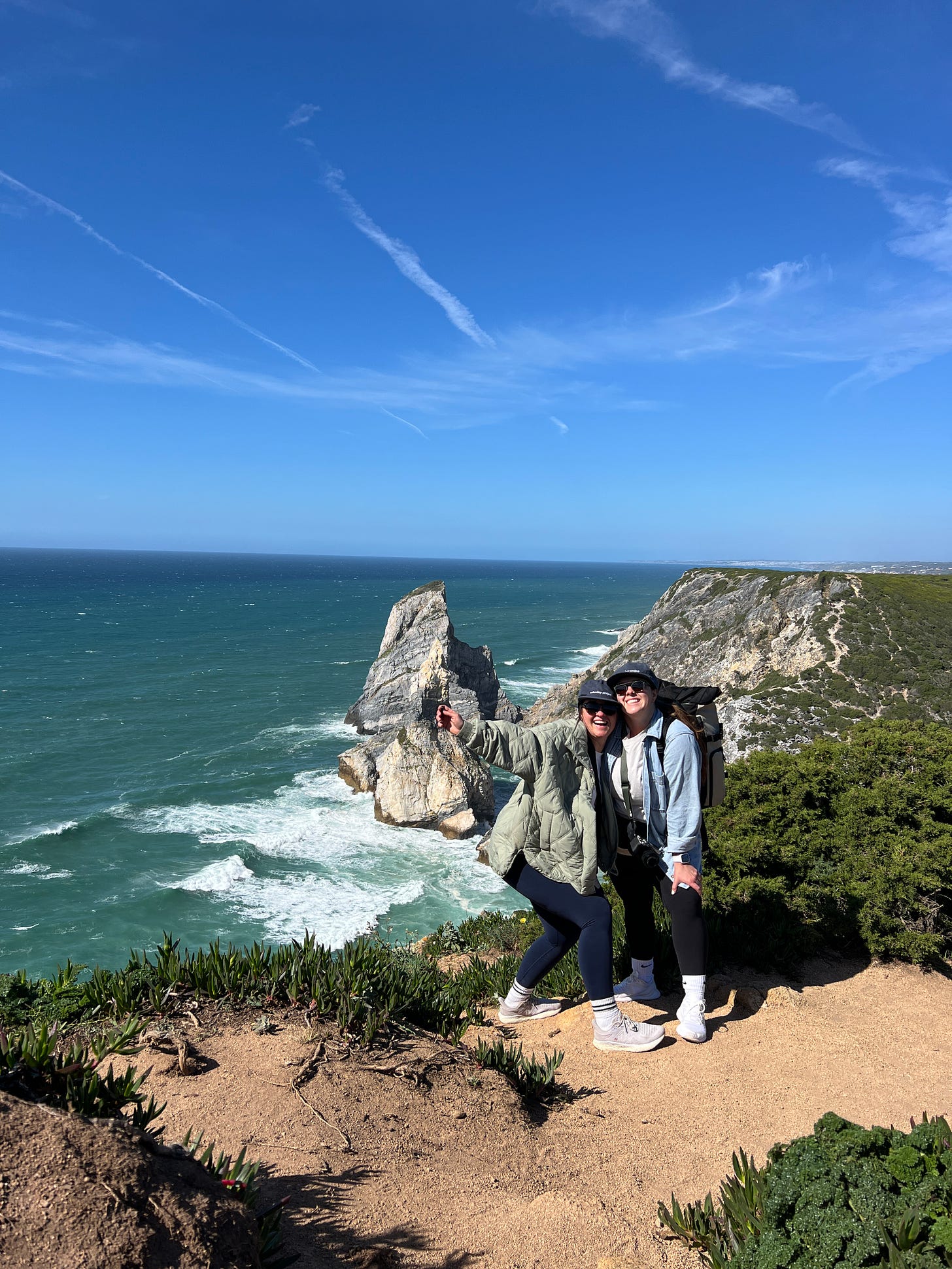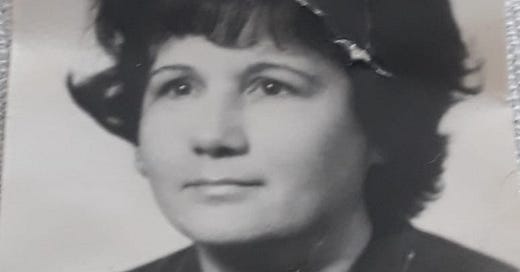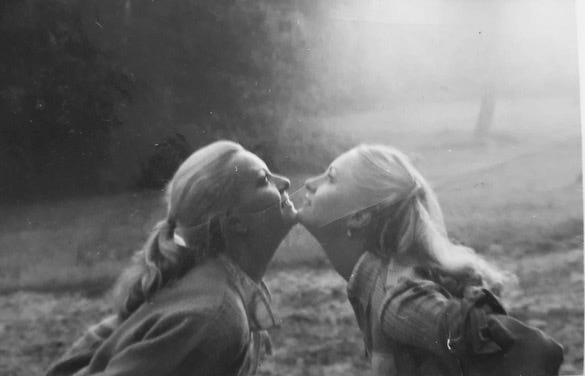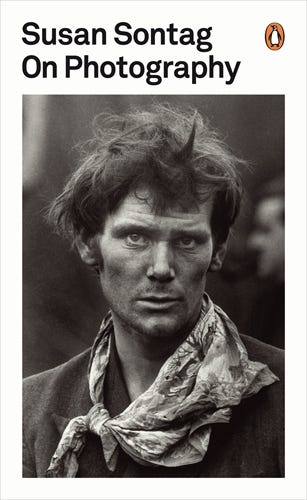The Moments We Keep: Photography and Memory
Grief, Joy, and Mindful Photos That Spark Our Emotions
I’m writing to you bundled up in a nest of blankets at home, while my partner makes comfort food for dinner. My grandmother passed away this week. On Saturday, I am boarding a flight to go home. Poland. When my father told me the news, once the initial shock faded and we hung up the phone, my mind scattered to the corners of memory, pulling her face forward. I found myself messaging him only seconds after hanging up.
I don’t even have a photo of her.
Now, I have photos my dad has sent through texts once in a while. But what I mean is, I don’t have photos of her as I remember her. Of her in her bikini sauntering out early in the morning for a swim at the lake, her black, pressed curls perfectly dry as she did little circles near the dock, head bobbing above the water, neck straight, chin high.
I don’t have photos of her in her garden, where she sparked my own love of playing in the dirt and growing food. I think of her when I plant my dill, and when my cucumbers failed last year, I thought about her. A pantry filled with homegrown, homemade pickles.
I don’t have a photo of her in the kitchen showing me how to make potato pancakes, or in her tiny cabin making homemade yogurt.
I don’t have a photo of her and me together.
I have my memories. And they are precious. My brother and I spent our summers with them. They owned a home business, and if we were caught lazing about the house, we were put to work. My fingers can still feel the hot, rough texture of tablecloths passed through a press in their laundry business. To escape hanging yet another restaurant's linens, my brother and I spent hours running wild in the nearby forest. To this day, I think of my grandparents' home when it rains on spring mornings, the smell of garden flowers and rain mixed in the air—the smell of summer in Poland.
With a camera in most of our pockets, it’s now possible to capture a fleeting moment easily. As Susan Sontag wrote in her essay Melancholy Objects, "Photographs turn the past into an object of tender regard."
Take photos of your loved ones.
Capture your friends.
Cherish the moments in between.
Pose them if you must.
At concerts, notice their love for music. Years from now, the song on stage won’t matter—you can always pull it up online. What you will remember are the feelings, the hugs, and the singing together. The crush of the crowd and the thump of the bass in your chest. I still remember watching Flogging Molly in high school and all the mosh pits I shouldn’t have been in at punk shows. Laughing with my friend Bailey, and excitedly jostling around in the crowd. As tempting as it is to lift your phone above the heads in the crowd, be honest with yourself. This isn’t about the song any longer; it’s about the feeling of being there.
On hikes, it won’t be the photos of mountains you'll revisit. It will be the selfie together at the summit.

You can always find photos of famous people and stunning landscapes, but your friend laughing and being themselves—only you will have that.
There are plenty of photographers for the public, the monuments, the shows. But there may come a time when there aren’t enough photos of them young, of you together.
When you have a choice between snapping a photo of them or the thing, choose them.
For those worried about getting caught with a phone or camera in their hand rather than enjoying the moment, take some advice from Charan Ranganath, Director of the Memory and Plasticity Program and Professor of Psychology and Neuroscience at the University of California, Davis, who shared on a podcast:
“You can use the camera in ways to enhance the memory. You can say, ‘I’m going to take a picture of this moment because this means a lot to me right now.’” The photo can be used as a way to be forced to attend to a moment and in the future, used to cue up an emotion.
I want to add more reason to not only take the photo of the person but to be mindful in taking them. Ranganath also said, “If you know that 80% of the details in your life or more are going to just vanish, what is the 20% that you want to hang on to?”
You have the opportunity to curate the moments you wish to remember. Pick the moments of emotion, beauty, and mindfully take the photo. When you bring it up, it can cue you to feel it all again. Ranganath shared that “it’s about being mindful of what are the memories that I want to plant and curating those future memories for your future self.”
Your future self.
Yes, I understand this. I was too young to have thought about taking photos of my grandma. I was too young to know that the candid moments with my grandmother would be the ones I would now crave as I begin to mourn.
“Photographs show people being so irrefutably there and at a specific age in their lives; group together people and things which a moment later have already disbanded, changed, continued along the course of their independent destinies.” — Susan Sontag
Once the trip has ended, the days pass, the big celebrations end, and moments are done. We will be left with the photos.
So don’t worry about the mountain.
Focus on them.
Your future self will thank you.
Do you have a photo that you're particularly grateful for? While writing this essay, I had a conversation with my friend Sheh about the power of photos in reviving memories. She shared a story about a treasured photo. She lit up as she told me about it, and it truly brought a smile to my face.
I'd love to hear your stories. If you feel comfortable, please reply and share a special photo, along with the story behind it.
Charan Ranganath
Curious about the podcast I reference? It was an Armchair Expert episode.
Susan Sontag
Sontag’s quotations are from her essay titled Melancholy Objects, found in On Photography.








Sorry to hear about your grandmother Ula.
Your section about Charan Ranganath is really interesting, thanks for sharing that. Lots of food for thought there...
I’m so sorry about your grandmother and to hear that, although there are many treasured memories that will always be there for you, you lack photos of these memories. Thank you for reminding us to capture those personal moments that can’t be replace but can be remembered even more deeply with a photographic reminder.